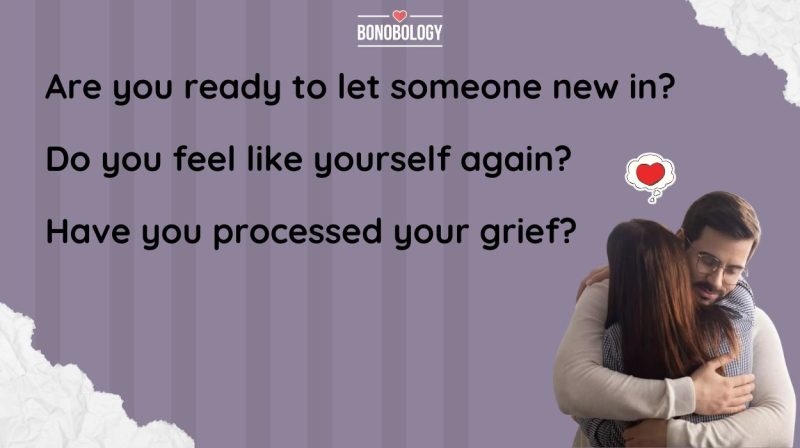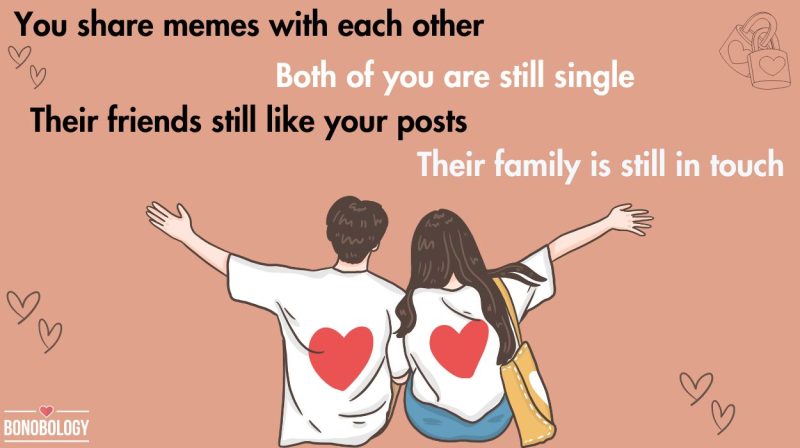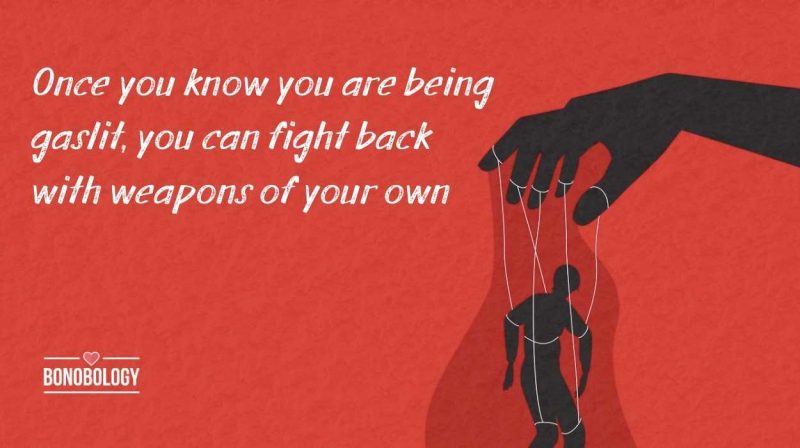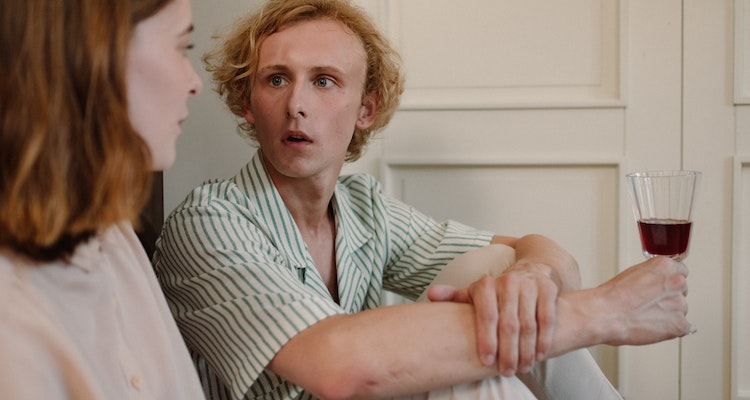A fear of relationships isn’t too unheard of. For most people, it’s probably the reason why their “single phase” lasts a little too long. In most cases, it’s not something to worry about. But when a debilitating sense of anxiety takes hold at the thought of falling in love, philophobia could end up affecting every romantic relationship a person finds themselves in.
Perhaps it stems from the experiences you’ve had or the jilted relationship you have with yourself. It may lead you to avoid any first dates or be scared of losing someone every time they begin to get a little close.
Whether it’s anxiety or reclusion you experience, a fear of relationships can be addressed. With the help of psychotherapist Dr. Aman Bhonsle (Ph.D., PGDTA), who specializes in relationship counseling and Rational Emotive Behavior Therapy, let’s understand the fear of intimacy.
What Is Philophobia – Fear Of Relationships?
Table of Contents
A fear of relationships, also known as philophobia, is a fear of falling in love, cultivating or maintaining romantic relationships. You may have experienced such a state after a bad breakup or a string of bad relationships. However, in extreme cases, philophobia can lead to isolation, feeling unloved, depression and multiple mental health issues.
“When somebody says, “I have a fear of relationships,” they’re basically saying they fear getting rejected. They’re saying they fear having their vulnerabilities used against them, which may lead them to avoid relationships in the future. It may have been stirred up because of the experiences a person goes through in the early stages of their life or it may be learned behavior.
“In other cases, it could be the result of a personality disorder. Such people find it difficult to get intimate with others. They have trouble admitting things they actually feel, and often prefer to be alone, even if they long for relationships,” says Dr. Bhonsle.
A fear of relationships may make a person think they’re incapable of being loved. Or if they’re in denial, they may mask it by saying they’re “enjoying the single life”. In reality, they’re petrified of giving someone the capability of hurting them just by not reciprocating.
Now that you know what is the fear of relationships called and what it feels like, you’re probably wondering where it stems from and how to fix it. If you’re the kind who ghosts people on dating apps after the conversation starts getting a bit too personal, you need to read on.
Related Reading: Insecure Attachment Style In Relationships: Causes & How To Overcome
What Causes Philophobia?
“When someone has a fear of commitment in a relationship, they’re essentially perceiving that the risk of getting their heart broken is too high, so they’re put off by the whole process. All perception is based on memory, which is why, in most cases, it’s caused by something a person experienced,” says Dr. Bhonsle.
A few incidents relating to how you were treated when you asked for love as a child are enough to damage your perception of love and care. That’s essentially why the causes are unique to each individual, and why it can get hard to pinpoint one. Even so, Dr. Bhonsle helps us list out the most common causes of philophobia:
1. Family dynamics
According to studies, a history of abuse or neglect results in the victim developing sexual difficulties and dating aggression. In other words, the dysfunctional family dynamics a child experiences can instill a sense of fear of relationships in the future.
Dr. Bhonsle explains the main reason for philophobia. “The family dynamics play a major role in this condition. Of course, a fear of relationships after abuse from the primary caregivers is the dominant cause, but it can also take place when the primary caregivers have been ambivalent in their approach toward providing love.
“If the child was belittled for asking for help and support from their primary caregivers, they’ll experience anxiety the next time they do so. All it takes is for a primary caregiver to say something along the lines of, “Why do you keep sticking to me? Go do something else” for the child to feel like s/he can’t rely on them.
2. A troubling past experience can incite a fear of relationships
“It isn’t necessary that family dynamics are the only reason why people develop this fear. Perhaps they went through something in their formative years. It could be anything from an authority figure belittling a child for asking for help or just developing a fear of social situations.
“Perhaps they went through infidelity or something of the kind in the past. As I said, all perception is based on memory. A bad memory about relationships is enough to incite a fear of intimacy,” says Dr. Bhonsle.
When a dodgy electrical socket shocks you, you’re probably going to avoid it the next time, or you’ll be covered head to toe in protective gear if you do have to meddle with it. Similarly, once a person goes through a bad experience with relationships, they’re going to avoid (and fear) them in the future.
3. A personality disorder

According to studies, mental health issues can lead to a fear of relationships and relationship anxiety. “Mental health disorders like bipolar disorder or narcissistic personality disorder can also be the reason behind a fear of commitment in a relationship.
“People affected by such personality disorder may either have a jarred relationship with themselves or may believe that they’re susceptible to behaving in ways that are not favorable, hence unlovable,” explains Dr. Bhonsle.
4. Self-esteem issues
“How you interact with other people will be a reflection of how you interact with yourself. It tends to percolate one way or the other. For example, if you don’t have a high opinion of yourself, you might think your romantic partners will feel the same way about you. As a result, someone with insecurity issues might end up avoiding romantic relationships as a whole,” says Dr. Bhonsle.
5. Learned behavior
As a continuation of the family dynamics a person experiences, the examples of love they see around them might shake their beliefs about what it’s like. Dr. Bhonsle explains how the lack of a role model for love can affect a person’s beliefs toward it.
“If a person has a mother who continually puts off her child from considering marriage because hers is abusive, it’s easy to see how it results in a fear of relationships after abuse. All it takes is for a mother to say something along the lines of, “Never get married, you’ve seen how your father behaves with me”,” he says.
Research also suggests that a parent with a mental health disorder like narcissistic personality disorder may result in negative attachment formation in children.
“In some cases, it might not take much for a fear of relationships to embed itself in a person’s psyche. A disturbing conversation concerning love, an unfavorable reaction when a child asks for love and support, or even an ambivalent parenting style can be the culprits,” he adds.
Related Reading: How To Deal With A Partner Who Makes You Feel Insecure
5 Signs You Have Fear Of Relationships
Knowing the causes behind a fear of relationships can give you an idea of where your commitment issues stem from. However, unless you know exactly how they manifest in your life, you can very effectively mask them behind a declaration of “enjoying the single life”.
Let’s figure out if the break from relationships you’re taking is actually just a hiatus, or if you need to acknowledge what’s going on under the surface.
1. Not wanting to move past dating
Taking some time off after a relationship to hit the dating game isn’t just normal, it’s recommended. However, if you find yourself pulling away from potential romantic partners consistently, it may indicate a larger problem.
Especially if you long for a relationship with someone but still end up pulling away. Fear of relationships can end up directing the way you talk to someone without you even realizing it. A few days of delayed responses and an unengaging date is all it takes.
2. A string of bad relationships
According to studies, those with a fear of commitment in a relationship tend to sabotage their own relationships. If a person convinces themselves of the fact that they’re unlovable, it may manifest in the way they act in the relationship.
They may make things difficult for their partner. They may even engage in behaviors that are detrimental to the relationship simply because they believe the dynamic is doomed to fail in the first place.
3. Avoiding physical intimacy
“I have a fear of relationships, but I thought it vanished when I took a leap of faith and got into a relationship with my current partner. Little did I know, my philophobia continued to manifest itself. I’d often instinctively pull my head away whenever he tried kissing me, which eventually got on his nerves.
“On the other hand, my partner expresses love by being extremely physical and through other ways of showing affection. It came to a point where I couldn’t take it, and I ended up pulling away in more ways than one,” Jessica told us.
Physical intimacy is a cornerstone of establishing a closer bond with your partner. Someone with a fear of relationships may avoid doing so to make sure they don’t let someone in.
4. You may not be able to express your needs or feelings
Since a person with a fear of commitment in a relationship often thinks of themselves as “unlovable” they may assume that talking about their needs and wants may “bother” the partner and put them off.
This, in turn, creates a loop of miscommunication. The partner isn’t able to mind read, leaving the person already grappling with a fear of relationship feeling like their needs aren’t being met. This further cements the belief they have of being undeserving of attention or love, which then triggers the sabotaging behavior.

5. Questioning the relationship extensively
Thinking about the strength of your relationship after a nasty fight when you’re two months into it is completely normal. However, if even on the good days you find yourself unsure of the relationship and asking yourself, “Am I happy? Is there something here?”, it may signal a cause for concern. By questioning the foundation a few too many times, you may start believing the doubts you have made up in your mind.
Philophobia can wreak havoc on any type of relationship you form with someone. Be it romantic, professional or even a friendship, being unable to express your needs is bound to eat away at it. That’s why it’s important to understand how to overcome a fear of relationships.
Related Reading: What Is Fear Of Commitment And How To Deal With It
Management And Coping Tips If You Have Fear Of Relationships
When you’re intimate with someone, you’re presenting your vulnerabilities and your unabashed self to them. It’s as if to say, “I love you, and I want you to see me for me.” But with such intimacy, you run the risk of having it being used against you.
It doesn’t even necessarily mean that people with a fear of intimacy don’t trust their partners or think that they’re out to get them. They fear the unknown, and the future of any relationship is unknown to us—even after an incessant amount of reassurance.
With a lot of love involved, the stakes of loss are equally high. With a lot of trust established, there’s always a chance of having it broken. The “what if?” aspect of relationships that are so dear to us causes people to be afraid of them, which is why some may avoid them altogether.
At some point in our lives, we must have experienced a fear of relationships as well. But when it goes from you happily avoiding a few first dates to getting anxious about ever getting too intimate with someone, it may affect your day-to-day life. Dr. Bhonsle shares a few tips on how to overcome a fear of relationships:
1. Seek professional help
“The first thing anyone should do is talk to a therapist who can help them unravel the source of the philophobia. A therapist will be able to establish how a person can go about establishing better self-esteem and addressing the cause of philophobia.
“Someone with high self-esteem doesn’t tend to let their needs and wants be unknown, and they do not tend to seek reassurances as much as someone with insecurity does,” says Dr. Bhonsle.
It’s also important to note that studying the signs of it and learning what is the fear of relationships called doesn’t necessarily mean that’s exactly what you have. Each individual’s circumstances are unique, and only a licensed professional can make an accurate diagnosis.
Especially if you think you’re struggling with an underlying mental health disorder that’s keeping you from investing yourself in relationships, it is pertinent to address it. Whether you’re looking to get to the bottom of the fear of commitment in a relationship you have or want to work on your self-esteem, Bonobology’s panel of experienced therapists, including Dr. Aman Bhonsle, can help you get there.
2. Work on vulnerability
When there’s a fear of relationships, you tend to not open up to someone in an attempt to not let them in. By allowing yourself to feel what you feel and communicating that with a partner, you’ll be moving one step closer toward establishing emotional intimacy.
You may have to ignore the voices in your head that instinctively tell you to not talk about what you’re feeling. It may seem like taking the leap is going to blow up in your face, but at the end of the day, you’ll learn that you can form healthier relationships by taking a risk.
3. Try to work on your self-esteem
As Dr. Bhonsle pointed out, the way you act with yourself will dictate the way you react to others in your life. When your opinion of yourself isn’t a good one, you’ll assume that the people around you think the same way.
Try to silence that self-loathing voice, and don’t let thoughts like “I’m not good enough for this relationship” or “I don’t deserve to talk about my feelings” get to you. One way to start building yourself up can be by addressing the things you have an issue with and working on yourself.
A fear of relationships can keep you from experiencing a close bond with someone. It may keep you from sharing your experiences, and the sabotaging behavior you indulge in can further lead to isolation. The reasons for your hesitation are unique to you, and a self-(mis)diagnosis is almost as detrimental as not addressing it. Now that you know exactly how a fear of relationships manifests in a person’s life, we hope the points we listed out can help you address them, lest you end up thinking you’re not worthy of love.
Trust Issues – 10 Signs You Find It Difficult To Trust Anyone
Your contribution does not constitute a charitable donation. It will allow Bonobology to continue bringing you new and up-to-date information in our pursuit of helping anyone in the world to learn how to do anything.






















Featured
Am I Moving On Too Quickly After Death Of Spouse—How To Decide
15 Signs You’ll Get Back Together With Your Ex
How To Get Over Trust Issues — A Therapist Shares 9 Tips
Learn How To Forgive Yourself For Hurting Someone You Love
How To Find Peace After Being Cheated On — 9 Tips From A Therapist
How To Forgive A Cheating Husband: 15 Helpful Tips
35 Disturbing Signs Of Gaslighting In A Relationship
What Is Narcissistic Ghosting And How To Respond To It
‘My Husband Starts Fights And Then Blames Me’: Ways To Cope
How To Rebuild Your Life After The Death Of A Spouse: 11 Expert-Backed Tips
My Husband Died And I Want Him Back: Coping With Grief
“Am I Unlovable” – 9 Reasons You Feel This Way
11 Signs Your Girlfriend Was Sexually Abused In The Past And How To Help Her
Coping With Breakups: The Must-Have Breakup Apps For Your Phone
15 Signs You Are Wasting Your Time Trying To Get Your Ex Back
Why Are You Obsessed With Someone You Barely Know — 10 Possible Reasons
33 Phrases To Shut Down Gaslighting And Silence Gaslighters
The Emotion Wheel: What It Is And How To Use It To Build Better Relationships
The Role Of Supportive Relationships In Addiction Recovery
7 Signs You Have A Verbally Abusive Wife And 6 Things You Can Do About It